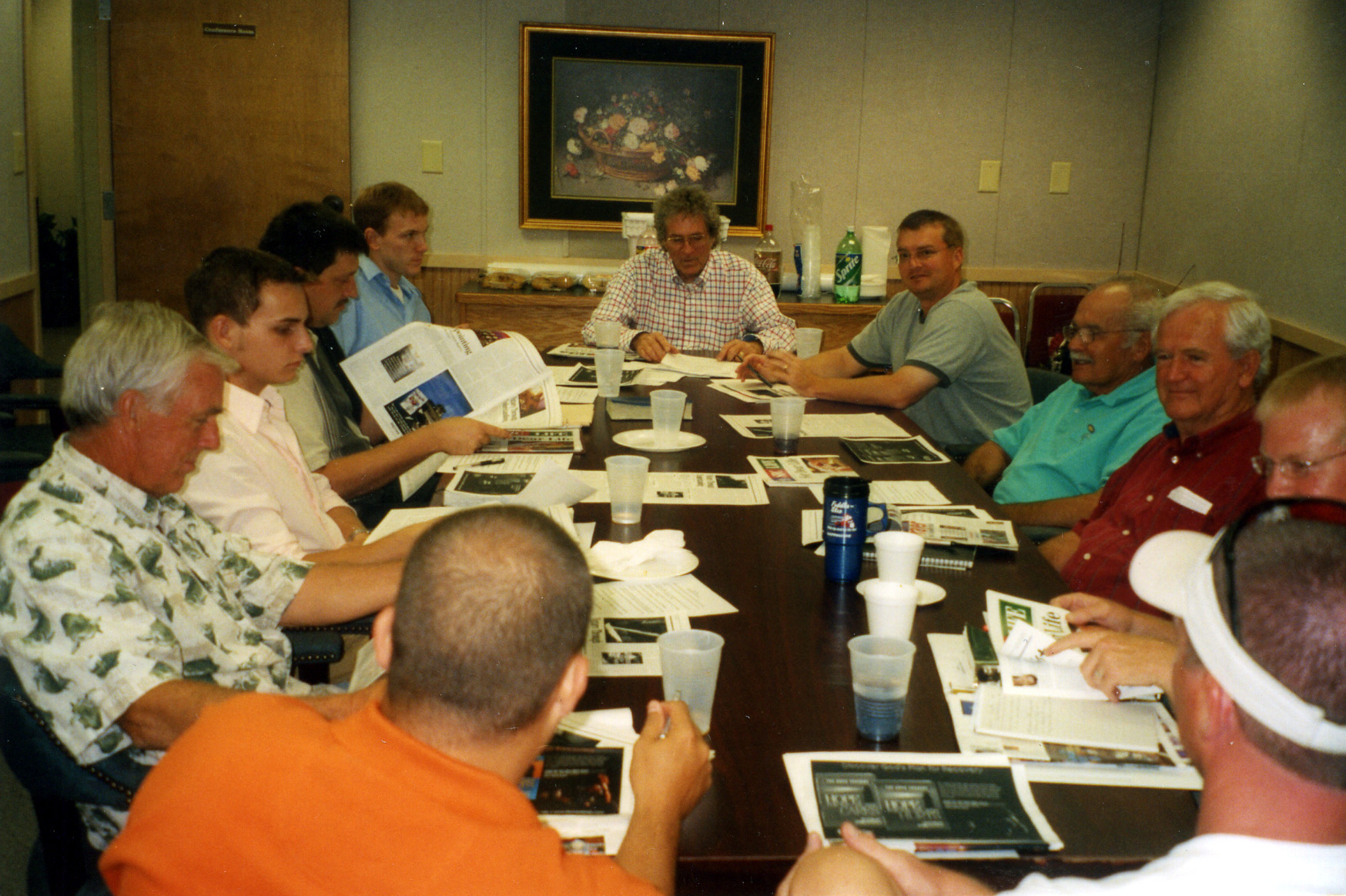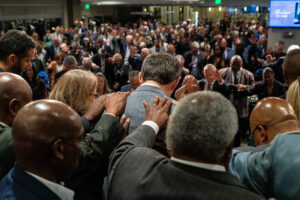
WENDELL, N.C. (BP)–A new treatment and recovery program to be implemented through the local church -– named HIS Way — has been launched by Ted Stone as part of his ministry to aid victims of the worldwide drug problem.
“HIS Way fills the tragic gap that has existed in the recovery process for years,” Stone explained in a kickoff Sunday morning message at Central Baptist Church in Wendell, N.C., this spring.
“Relapse has become a way of life for many who have traveled to treatment centers seeking help for their addictions, only to return to the local community where the wiles of drug abusers and old sinful lifestyles wait to entice the returnees who have experienced a brief respite from former comrades and their wayward bent,” Stone said. “The Christian church has failed to provide the next essential step to permanent recovery, and therefore many of these who have achieved temporary sobriety, and perhaps even a salvation experience at a Christ-centered facility, are easily entrapped again.
“But there is hope if the church rises to the call of Christ and opens the door to broken people,” said Stone, a Southern Baptist minister who has walked across America three times to proclaim a revolutionary message of hope. In his books and countless articles in Southern Baptist publications he has noted that “I used to be a drug addict, but I am no longer a drug addict. I am recovered forever by the grace of God, and that same hope can belong to you or anyone you love!”
He selected Central Baptist in Wendell, N.C., as the initial church for the HIS Way initiative because Pastor Ed Rose and the congregation have committed themselves to embrace those in the community who hurt and are broken. At the first planning session, Associate Pastor Bill Kincaid reflected, “If God is up to something, He’ll use us and this endeavor!”
Rose said God “revealed to us a real ministry need that could be met through HIS Way, and He also showed me that He had called and gifted our church with members to minister in this area of need. This will empower our members to serve out their calling and meet a great challenge in this community.”
HIS Way requires three necessary components, Stone explained: The church staff and congregation must be devoted to the success of the program; a group of godly men from the congregation must be trained to be effective mentors to those to whom they are assigned for a period of six months or longer; and recovering addicts must be serious about the achievement of permanent recovery from their drug addictions and accompanying negative lifestyles.
In addition, each participant must have successfully completed a primary Christ-centered treatment program and must have experienced a saving relationship with the Lord Jesus Christ before being assigned to a mentor. Stone said the senior pastor and other staff members should approve of each mentor and each participant in the new program.
While group therapy has many benefits, those with serious addictions and lifestyle problems will find much greater help in HIS Way because it is designed to encourage a one-to-one encounter, providing greater personal attention, Stone said. Group meetings are a part of the overall program. Mentors and participants will meet twice a month with an emphasis on two subjects: the Christian lifestyle and the role of the Christian in the church. Another series of meetings will be held with families of participants and others in the community whose family members have drug-related problems and have not yet sought help.
Philip Barber, an associate in Ted Stone Ministries which formulated the HIS Way initiative, told the audience that Stone, who has served as a mentor to him as he prepares for the ministry, has duplicated himself in his life and the lives of other “sons in the ministry” through their early stages of ministry preparation. Barber currently is a student at Southwestern Baptist Theological Seminary in Texas. Addressing his remarks to the two dozen men in the congregation who had expressed interest in becoming mentors, Barber said, “You godly men will also duplicate yourselves in the lives of those whom you mentor and encourage, and the work of the Lord will be greatly increased.”
At the luncheon that day for potential mentors, Stone reminded that they are the keys to the success of the program. “It will be your privilege to hold an accountability session with the participant assigned to you on a weekly basis, and it will be your challenge to also fully assimilate your assigned charge into the body of believers, the local church, where at the end of the six-month period, the participant will be viewed no longer as a drug addict or former drug addict, but as a valued and loved member of the local church. This newcomer hopefully will one day achieve the measure of dedication and faithfulness evidenced in your lives.”
Matthew Omlie, another of Stone’s “sons in the ministry” and a student at Southeastern College at Wake Forest, addressed the men and described how Stone became “God’s spokesman to me during my treatment and recovery days.”
“Ted asked me to fully surrender my life to the Lord. This was a new and unique concept to me, for I had thought that when I accepted Christ as my Savior during my first few days of treatment at Bethel Colony that that was all there was to it,” Omlie recounted. “But Ted told me that there was more to the Christian story than just celebrating salvation. Down on my knees in prayer to God, I fully surrendered my dreams and hopes … my whole life to the Lord, and now I am studying at Southeastern and working with Ted in this ministry.
“You will become God’s spokesman to the participant assigned to you as a mentor,” Omlie said. “Be true to your calling. It is so important that you represent the Lord well!”
Stone also has begun training mentors at a second church, Parkview Baptist in Morehead City, N.C., where Michael Fields is pastor.
While these two initial programs are designed for men, the program can be instituted for men or women, Stone said, but it should never be combined for both men and women. Separated programs are necessary for insuring ultimate success, he said, noting that only men mentors should be assigned to men participants and only women mentors should be assigned to women participants.
–30–
For further information on HIS Way or speaking engagements or other services of Ted Stone Ministries, write to Ted Stone, P.O. Box 1397, Durham, NC 27702 or telephone (919) 477-1581.
















